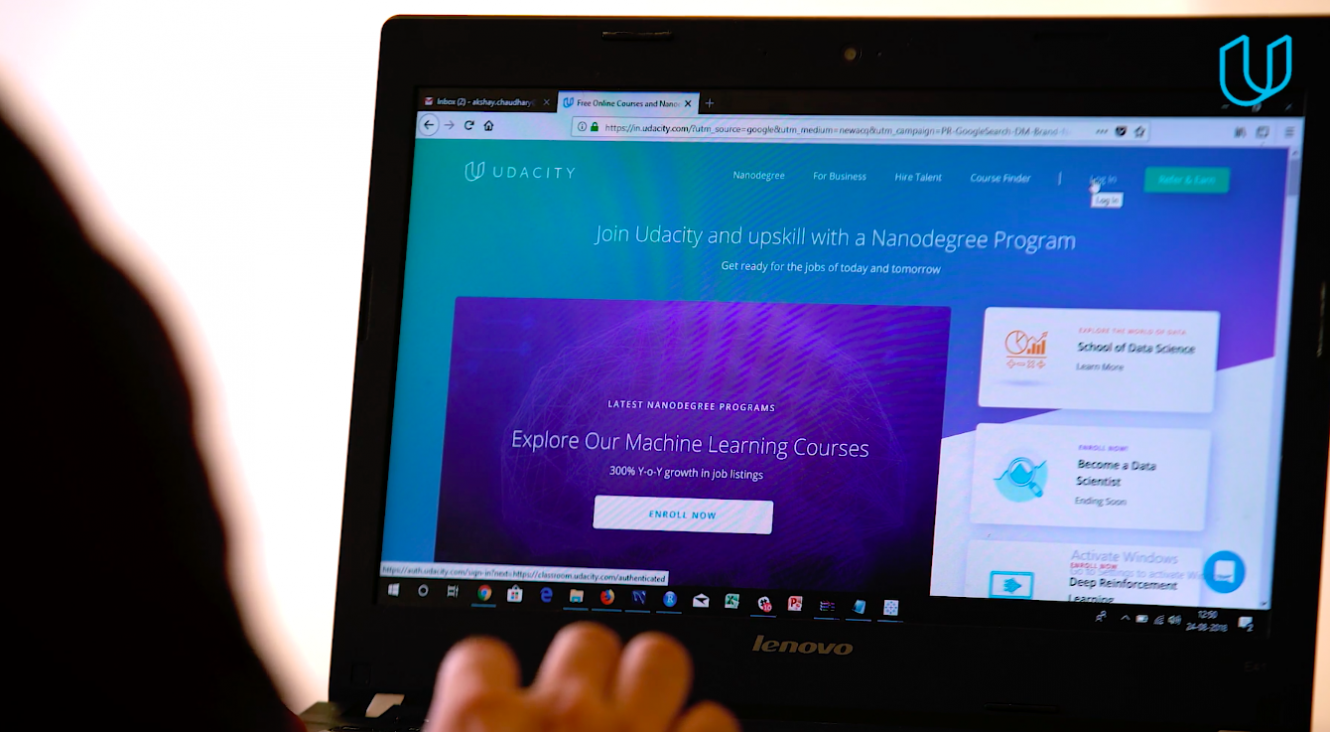
Editor’s Picks
Industry News
Udacity Teams Up With Facebook for the PyTorch Challenge
By Cait Etherington
October 02, 2018
Earlier this year, Udacity, the MOOC provider best known for offering Nanodegrees, teamed up with Lyft to launch the Lyft Perception Challenge. In this case, Lyft invited anyone enrolled in a Udacity Self-Driving Car Engineer Nanodegree program to spend a month competing for a chance to interview for one of the company’s open self-driving vehicle positions. On October 2, Udacity announced the PyTorch Challenge, which focuses on Facebook’s deep learning developer framework. Students will compete for a full scholarship to complete Udacity’s Deep Learning Nanodegree program. The challenge is being supported by Facebook.
This is not the first time Udacity and Facebook have teamed up. In April 2017, the two organizations partnered to launch Mobile Developer Education at F8 and later the same year, they partnered again to launch Udacity’s Mobile Design and Usability course. As Stuart Frye, Udacity’s Vice President of Business Development, said in an article posted on the Udacity website on October 2, “We’re thrilled to collaborate with Facebook in creating incredible learning experiences for deserving students across the globe, and Facebook’s commitment to supporting the next generation of artificial intelligence (AI) talent is something we’re excited to match lesson for lesson, program for program, and opportunity for opportunity.”
The Udacity-Facebook PyTorch Scholarship Challenge
PyTorch is an open source deep learning framework that is increasingly being adopted by AI researchers. On October 2, at PyTorch Developer Conference in San Francisco, Udacity and Facebook announced plans to support and invest in funding 10,000 seats in Udacity’s new PyTorch course: “Introduction to Deep Learning with PyTorch.” In the course, students will explore the basics of deep learning, build their own deep neural networks using PyTorch, and gain practical experience with PyTorch by participating in coding exercises and collaborative projects. The course curriculum has been developed in consultation with Soumith Chintala, an artificial intelligence research engineer at Facebook and the creator of PyTorch.
Not all 10,000 students will receive a full scholarship. Instead, the challenge will consist of two distinct phases. In Phase 1, up to 10,000 students will complete their coursework on PyTorch with support from community managers. In Phase 2, the top 300 students (selected students will be chosen on the basis of output and ability to collaborate with others) will earn a full scholarship to Udacity’s Deep Learning Nanodegree program. During the second phase of the challenge, students will cover additional materials such as convolutional and recurrent neural networks, generative adversarial networks, and deployment.
Additional details on the PyTorch Challenge are outlined on the Udacity website, but if you want to participate, don’t wait too long to apply. The deadline for applications is October 23, 2018, and the program is slated to start November 9, 2018. The only requirement is that applicants be at least 18 years of age or older when they start the program and speak English well enough to fully participate.
Reasons to Pursue AI Skills in the PyTorch Challenge
Udacity’s PyTorch Challenge couldn’t come a better time. There is currently a massive shortage of skilled AI experts and as a result, these professionals are increasingly able to demand salaries that frequently rival the salaries of top executives. As reported in the New York Times earlier this year, one company, OpenAI in San Francisco, paid its top AI researcher, Ilya Sutskever, more than $1.9 million in 2016. The same company paid another AI researcher, Ian Goodfellow, more than $800,000 for a partial year of work. In total, OpenAI spent $7 million of its $11 million dollar budget on salaries during its first year of operation. To put this figure into perspective, OpenAi only had 52 employees in 2016.
Given that job and salaries prospects look incredibly promising for AI talent, there are evidently multiple reasons to pursue Udacity and Facebook’s current PyTorch Challenge.









Tengo 13 Años estudiante en Houston,Texas.Yo creo que nos tienen que dar una oportunidad a nos otros los que apenas somos adolescentes.Yo creo que nosotros somos capacitados de hacer estos cursos online.Muchos no nos ven capacitados creen que solo jugamos pero, hay otros que si les importa para su futuro aprender.Gracias,y quiero que tomen my comentario como una posibilidad.
[…] 10. Winners of the 2018 Blackboard Catalyst Awards […]
[…] 1. Winners of the 2018 Blackboard Catalyst Awards […]
[…] 11. Winners of the 2018 Blackboard Catalyst Awards […]